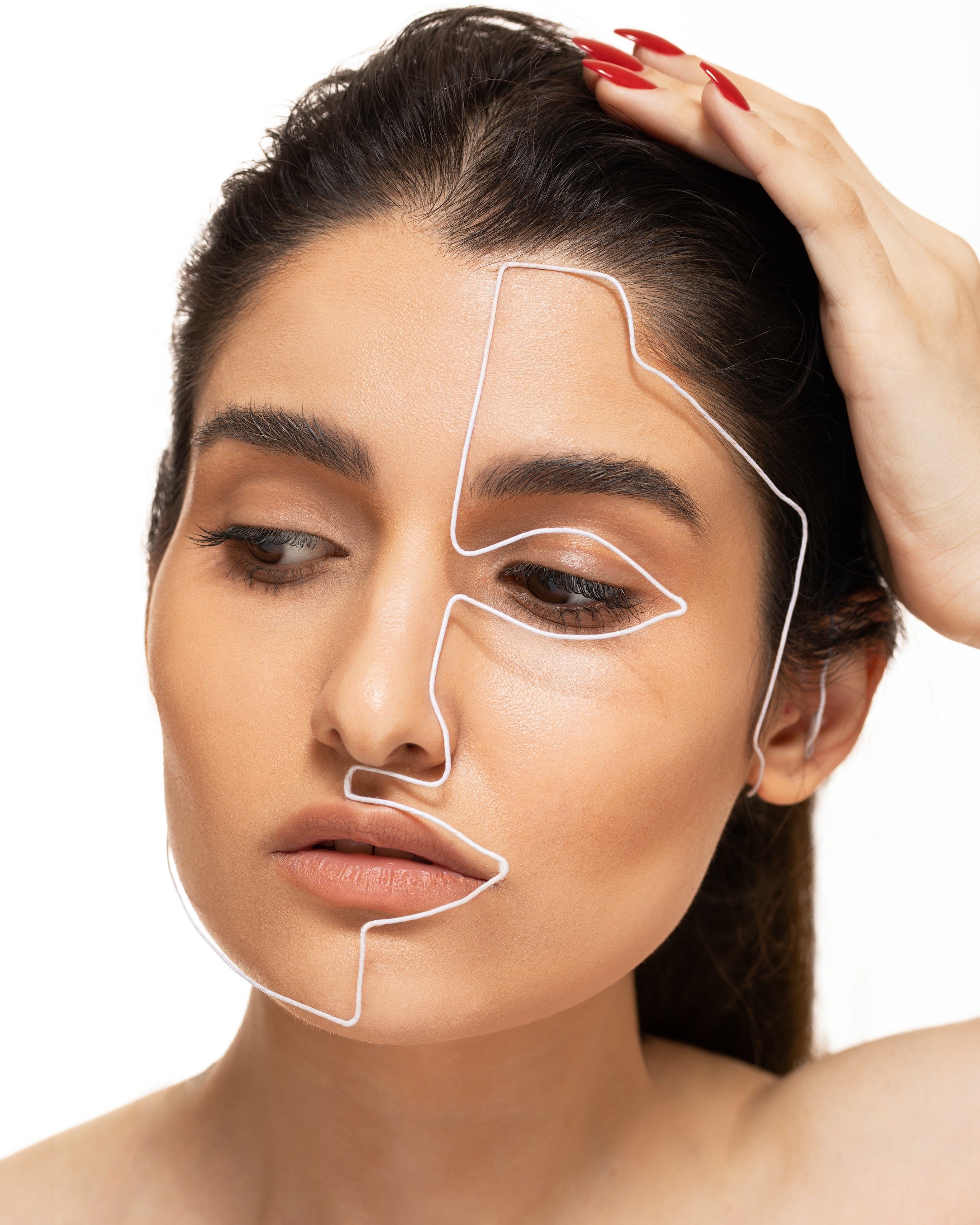Article: Finding Your Skin Type for Optimal Skincare: Decoding the 5 Skin Types

Finding Your Skin Type for Optimal Skincare: Decoding the 5 Skin Types
Understanding your skin type is the first step to having beautiful, healthy skin. Whatever your skin type—oily, dry, combination, regular, or sensitive—adjusting your skincare routine can provide noticeable results. In this post, we'll examine the traits that distinguish each skin type and offer practical advice for determining yours.
Skin Type 1: Oily Skin
Excessive sebum production, which frequently results in glossy skin, enlarged pores, and a propensity for acne, is the hallmark of oily skin. You probably have oily skin if you often notice an oily T-zone on your forehead, nose, and chin. Oily skin can benefit from regular, gentle cleansing to prevent clogged pores. But choose a cleanser that won’t strip the skin of its hydration and oils, as this can make your skin’s sebum production go into overdrive!
Skin Type 2: Dry Skin
Dry skin lacks adequate moisture and feels tight and flaky. It might look rough and drab, and fine lines might be easier to see. You probably have dry skin if it frequently feels parched and displays symptoms of dehydration. To increase moisture retention, look for products that contain components like hyaluronic acid and squalane, rich but non-comedogenic ingredients like shea butter and jojoba oil, and cleansers that also balance skin hydration.
Skin Type 3: Combination Skin
A blend of several skin types in distinct facial regions is known as combination skin. Typically, the cheeks and exterior areas of the face are drier than the T-zone, which is oilier. Combination skin can benefit from using a mild cleanser, a lightweight moisturiser, and a targeted serum for a particular issue.
Skin Type 4: Normal Skin
Those with regular skin are fortunate! It has a good balance, not being very greasy or dry. The complexion is generally even, and pores are often minimal. However, normal skin still needs regular care to keep up its health and shine. Typical skin types require a mild cleanser, a light moisturiser, and more intensive treatments such as a mask or overnight cream.
Skin Type 5: Sensitive Skin
Sensitive skin often reacts quickly to the environment, certain chemicals, or allergens. It could look inflamed, red, and prone to scratching. You probably have sensitive skin if it constantly reacts with redness or inflammation. A common myth is that natural products are better for sensitive skin, but actually, many plant ingredients such as citrus oils can be highly irritating. The lack of preservatives can make “all natural” products prone to bacteria or oxidation, which can also cause problems for sensitive skin.
How to Determine Your Skin Type?
Let's look at ways to determine your skin type:
Cleanse: Start by cleansing your skin gently to remove any makeup and debris.
Observation: Check out how your skin feels an hour later. Is it constricting and uncomfortable? This could be a sign of dry skin. If your T-zone is shiny, you may have combination skin, but the rest appears normal. You may have oily skin if you see a general sheen of oil.
Blotting Paper Test: Lightly press a piece of blotting paper on various areas of your face. You most likely have oily skin if it collects oil from your chin, nose, and forehead. You may have mixed skin if it absorbs oil from specific spots.
Visual assessment: In bright lighting, examine your skin. You probably have normal skin if it appears comfortable and isn't visibly dry or oily.
Sensitivity analysis: Pay close attention to any irritation, itching, or redness symptoms. Your skin is probably sensitive if it reacts quickly.
Why does this matter to your skincare routine?
The first step to developing an effective, efficient skincare routine is determining your skin type. Keep in mind that your skin's behavior might be influenced by elements such as temperature, nutrition, and lifestyle. Knowing your skin type allows you to confidently select products and design a skincare routine tailored to your requirements. As you embark on your journey to healthier, more youthful skin, remember that consistency and patience are essential.
